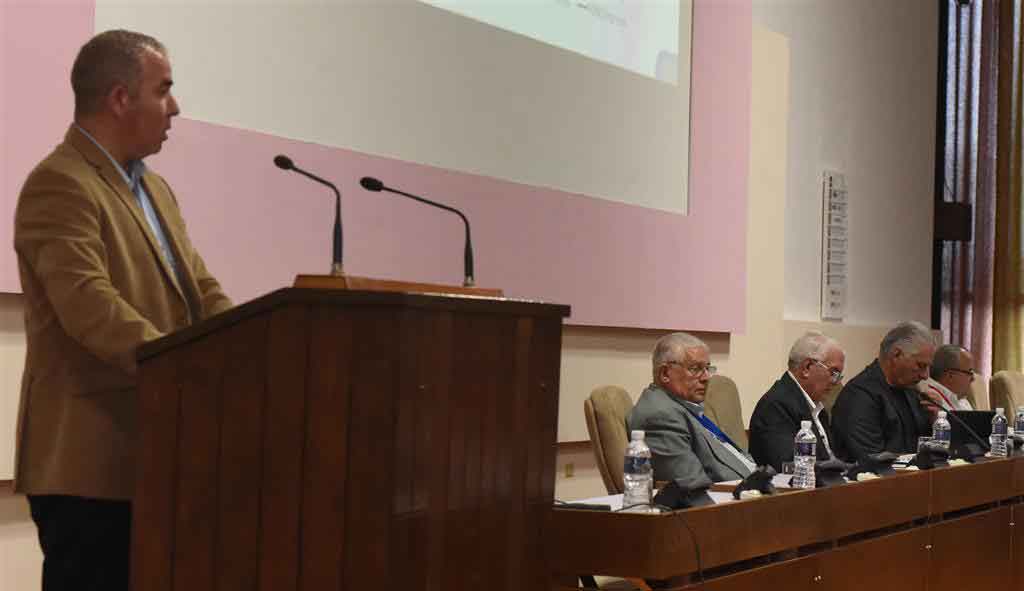Regueiro explained that the draft state budget is based on the Government’s Projections to correct the distortions and re-boost the economy, as well as the indications from the elaboration of the Economic Plan.
They reflect the deterioration of global economic conditions that affect the country negatively, thus increasing the limitations to advance in economic and social programs and in the Objectives of the Economic and Social Development Plan until 2030, he added.
Consequently, the State Budget prioritizes the satisfaction of basic services for the population, addresses demographic and rural challenges, while offering protection to vulnerable communities.
It aims to promote the recovery of economic activity in primary and strategic sectors, as well as the gradual improvement of the business system, an essential player in the Cuban economic model.
Regueiro stressed that despite the limitations imposed by the illegitimate economic, commercial and financial blockade by the Government of the United States, the adverse effects of the global economic crisis and inflation in international trade, Cuba maintains a firm commitment to boosting sustainable development and improving the quality of life of citizens.
In this context, it is essential to strengthen the tax system as a fundamental pillar of financial resources for the State Budget. In order to achieve that, it is fundamental to improve revenue collection through systematic evaluation of compliance with contributions, timely collection and tax payment oversight, he explained.
At the same time, efficiency in spending control must be increased under criteria of savings, rationality and moderation in order to improve the budgetary result.
This implies rigorous and disciplined budgetary work, which promotes containment of the fiscal deficit, reduction of public debt and control of inflation management, he emphasized.
jg/jha/tdd










